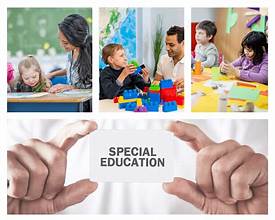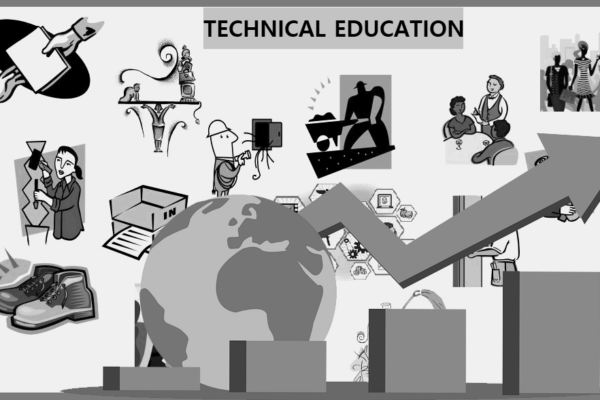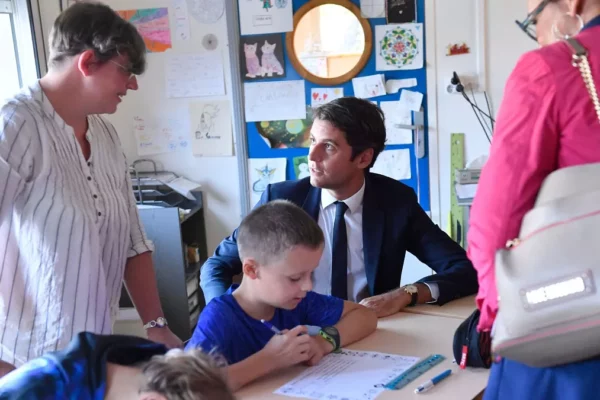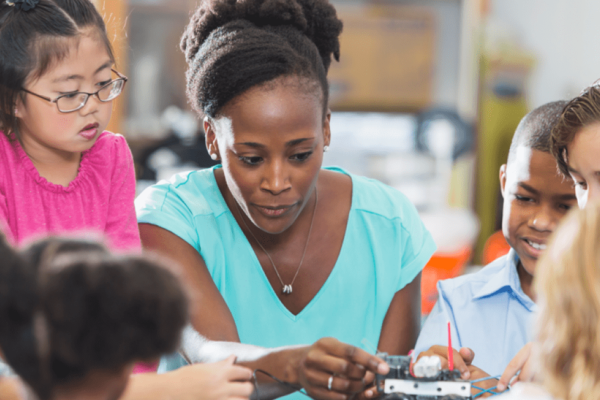Introduction to Primary and Secondary Education
As an educator with years of experience in the field, I firmly believe that primary and secondary education play a crucial role in shaping the future success of individuals. Primary education refers to the initial years of formal schooling, usually starting at the age of five or six, while secondary education encompasses the years following primary school until the completion of high school. In this article, I will delve into the significance of primary and secondary education, the benefits they offer, the challenges they face, and strategies to improve these educational systems.
The Importance of Primary Education
Primary education serves as the foundation upon which a child’s educational journey is built. It equips young learners with fundamental knowledge, essential skills, and a love for learning. During these formative years, children develop their literacy and numeracy skills, critical thinking abilities, and social interaction capabilities. A strong primary education not only prepares students for the challenges of secondary education but also fosters a lifelong passion for learning.
Furthermore, primary education plays a pivotal role in promoting social and emotional development. It helps children develop empathy, respect for diversity, and a sense of belonging within their community. By providing a safe and nurturing environment, primary schools create opportunities for children to develop their self-esteem and confidence, essential traits for success in all aspects of life.

Benefits of Secondary Education
Secondary education builds upon the foundation established in primary school and offers a more comprehensive and specialized curriculum. It provides students with a broader range of subjects, allowing them to explore and identify their interests and strengths. Secondary education also encourages critical thinking, problem-solving, and analytical skills, preparing students for higher education and the workforce.
In addition to academic development, secondary education contributes to the personal growth of individuals. It promotes independence, responsibility, and time management skills. Adolescents also benefit from the diverse social interactions that secondary schools offer, allowing them to form lasting friendships and develop important social skills such as teamwork and leadership.
The Role of Primary and Secondary Education in Building a Strong Foundation
Primary and secondary education collectively form the bedrock of an individual’s educational journey. They provide the necessary knowledge, skills, and values that shape a person’s character, abilities, and aspirations. Primary education lays the groundwork for future academic success, while secondary education offers students the opportunity to specialize and explore their passions further.
Moreover, primary and secondary education foster a love for learning and equip individuals with the tools to navigate an ever-changing world. By nurturing curiosity, critical thinking, and problem-solving skills, these educational stages empower students to adapt and thrive in an increasingly complex and interconnected global society.
Challenges in Primary and Secondary Education
Despite the undeniable importance of primary and secondary education, they face several challenges that hinder their effectiveness. One significant challenge is the lack of access to quality education, particularly in marginalized communities or underdeveloped regions. Insufficient infrastructure, inadequate resources, and a shortage of qualified teachers are common barriers that prevent many children from receiving a proper education.
Another challenge lies in the growing achievement gap between students from different socioeconomic backgrounds. Disparities in educational opportunities result in unequal outcomes, perpetuating social inequality. Additionally, overcrowded classrooms, large student-to-teacher ratios, and outdated teaching methods impede the delivery of high-quality education.
Strategies for Improving Primary and Secondary Education
To address the challenges faced by primary and secondary education, it is essential to implement effective strategies that promote inclusivity, equity, and quality. First and foremost, governments must prioritize education funding, ensuring that schools have the necessary resources, infrastructure, and well-trained teachers. Investing in teacher professional development, innovative teaching methods, and modern learning technologies can greatly enhance the educational experience.
Furthermore, partnerships between schools, parents, and communities are vital for creating a supportive and conducive learning environment. Parents and caregivers must be actively involved in their child’s education, fostering a home environment that values learning. Collaboration between schools and communities can provide additional resources, mentoring programs, and extracurricular activities that enrich students’ educational experience.
The Impact of Primary and Secondary Education on Future Success
The impact of primary and secondary education extends far beyond academic achievement. Individuals who receive a quality education during these early stages of their lives are more likely to experience improved health outcomes, higher earning potential, and increased social mobility. Education equips individuals with the necessary skills to contribute positively to their communities and societies, fostering economic growth, innovation, and social cohesion.
Moreover, primary and secondary education lay the groundwork for lifelong learning. They instill a love for knowledge, curiosity, and a growth mindset that individuals carry with them throughout their lives. The critical thinking, problem-solving, and communication skills developed during these stages are invaluable in navigating the complexities of the modern world.
The Role of Parents and Teachers in Supporting Primary and Secondary Education
Parents and teachers play a crucial role in supporting and nurturing primary and secondary education. Parents must actively engage in their child’s education by creating a supportive home environment and fostering a love for learning. They should communicate regularly with teachers, attend parent-teacher conferences, and provide resources and encouragement to their children.
Teachers, on the other hand, are responsible for creating a stimulating and inclusive learning environment. They should employ innovative teaching methods, differentiate instruction to meet the diverse needs of students, and provide timely feedback and support. Collaboration between parents and teachers can bridge the gap between home and school, ensuring that the child’s educational journey is seamless and holistic.
The Importance of Investing in Primary and Secondary Education
Investing in primary and secondary education is not only a moral imperative but also a strategic investment in the future. Education is a powerful tool for social and economic development, breaking the cycle of poverty and inequality. By providing equal access to quality education for all children, societies can unlock the potential of their future generations, fostering innovation, prosperity, and social cohesion.
Governments, policymakers, and international organizations must prioritize education funding and allocate resources efficiently. Investing in teacher training, modern infrastructure, and innovative educational technologies can yield significant returns in terms of improved learning outcomes and enhanced student engagement. By investing in primary and secondary education, societies invest in the success and well-being of their citizens.










Comments on " The Importance of Primary and Secondary Education: Building a Strong Foundation for Success" :